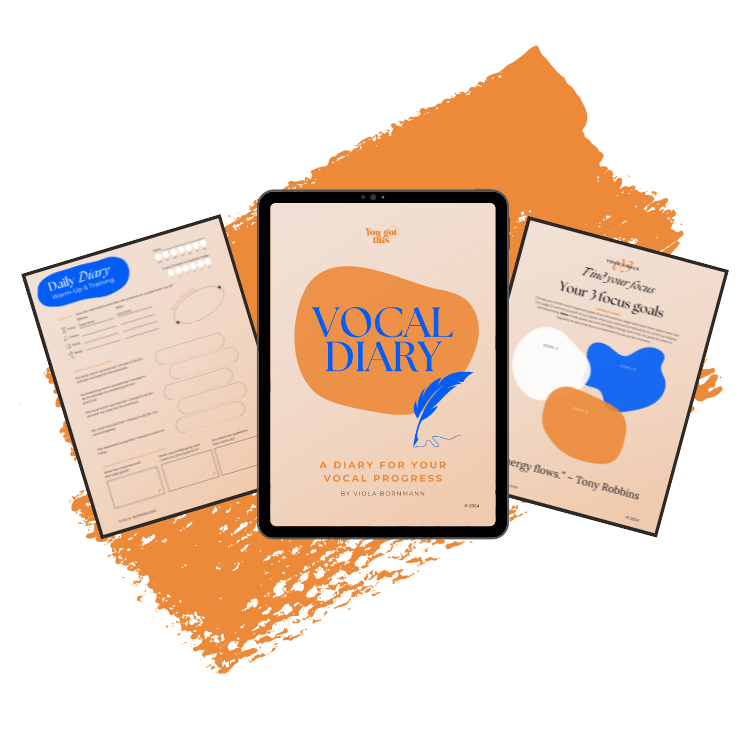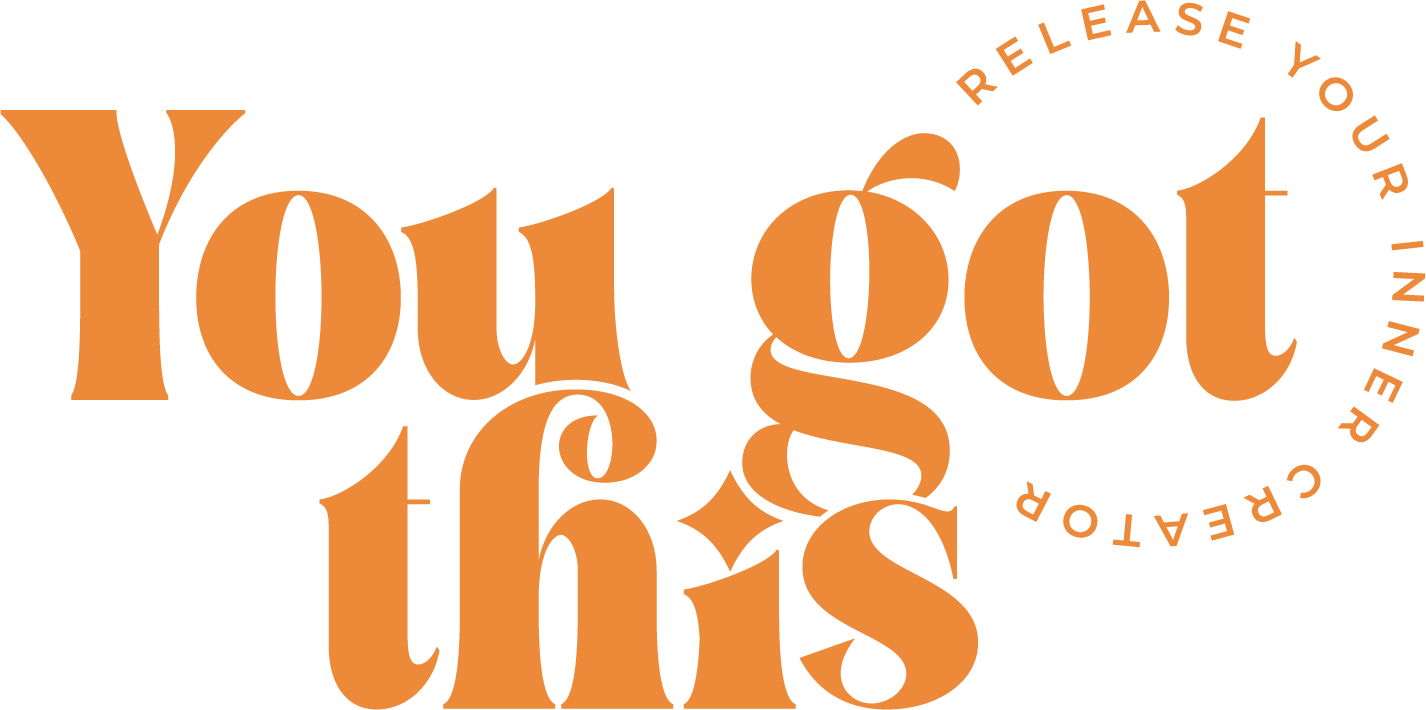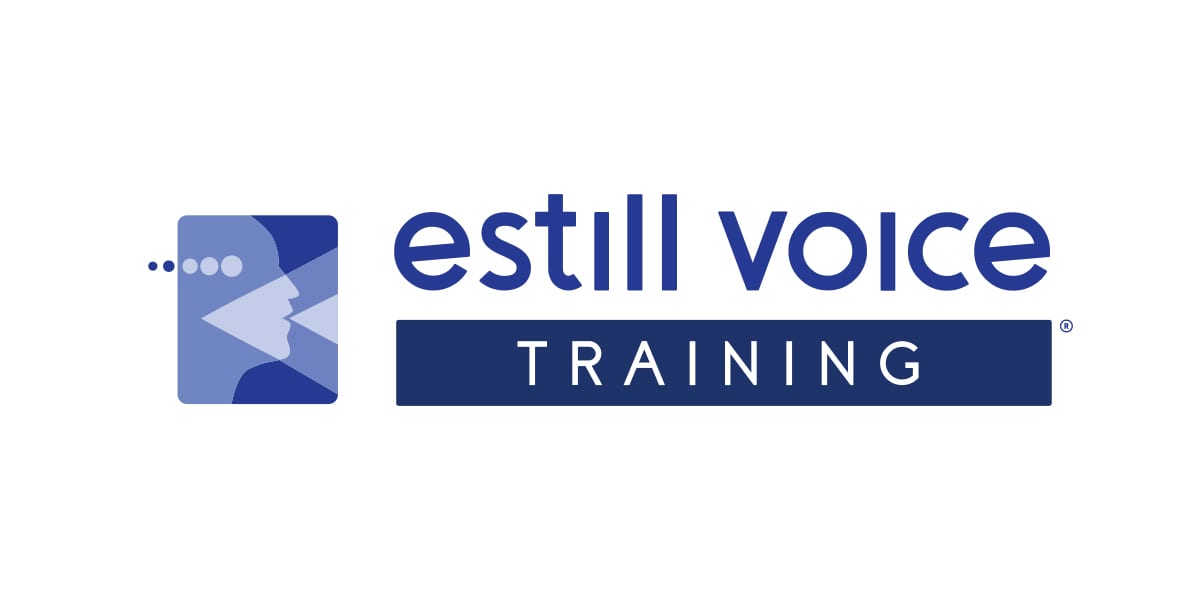BLOG
Reclaim your voice – both inside and outside.

#7 | Don’t Squeeze the Sound – Let Your Belly Breathe
If you’ve ever been told to squeeze your abdominal muscles while singing, you might have heard this logic:
Squeeze = strength = support. Right?
But here’s what actually happens when you do that.
Introduction:
When I started singing as a kid and teenager in Germany, there was one word I heard constantly: “Stütze.”
If you translate it, it means “support.” But the way it was taught and talked about made it feel like this: Support = squeeze. Engage the belly as tight as you can.
So that’s what I did, what I thought was right. In choir, in lessons, I was squeezing my belly – or rather, my abdominal muscles.
And the more I did, the more uncomfortable my voice felt. Wasn't it supposed to support me?
In this blog post, I explore why squeezing your abdominal muscles while singing can cause tension and limit your voice’s freedom. You’ll learn how breath support works naturally through your body’s coordination, why effort should feel comfortable – not forced – and how to find the “most comfortable vocal effort”. This will help you sing with more ease, power, and confidence.
Table of contents:
Why squeezing doesn’t help
So… should you use your abs at all?
A simple try-it-yourself exercise:
When squeezing shows up: higher notes & powerful phrases
My personal shift
Remember: We’re all built differently
1. Why squeezing doesn’t help
If you’ve ever been told to engage your abdominal muscles while singing, the idea might sound familiar:
Squeeze = strength = support. Right?
But here's what really happens when you do that:
The tension spreads.
Your body isn’t made of isolated parts. If you lock your belly, chances are you’ll also feel it in your throat, jaw, or shoulders. And that tension? It shows up in your voice – often making it sound pressed, tight, or effortful.
Your sound becomes less free.
Instead of getting more control, you get less. Less resonance, less freedom, and ironically: less power.
2. So… should you use your abs at all?
Yes – but not like that.
When we sing, we do need breath support. That comes from a natural coordination between your diaphragm, abdominal muscles, intercostals (the ones between your ribs), and posture.
But this coordination is reflexive, not something you have to force. The more you trust your breath, the more your body can do what it already knows.
Think of it this way:
Support, not strain
Engagement, not gripping
Allowing, not pushing
3. A simple try-it-yourself exercise:
Next time you sing, try this:
Put your hands gently on your belly. Not to control it – just to notice the movement.
Inhale and feel your belly soften and expand. Don't pull it in or brace it. Start singing a simple phrase or note.
Let your belly respond naturally and observe if your abdominal muscles gently move back in as you sing – without squeezing.
Now, try the same thing while intentionally squeezing your belly:
Notice the difference in your throat, your jaw, and your sound.
Which version feels more free?
4. When squeezing shows up: higher notes & powerful phrases
I often see this in clients when it comes to:
Higher notes
More volume
Sustained phrases
The belly squeezes – almost as a protective reflex. It makes sense: your brain is trying to “help” by recruiting more muscles.
But often, this well-meaning reflex gets in the way. Instead, you want a body that responds to what you sing – not fights with it.
5. My personal shift
I remember the first times I sang phrases without squeezing. It felt almost wrong, it felt too easy and too relaxed. But it sounded better. I had more control, not less. And I didn’t feel exhausted after.
That’s when it clicked:
I don’t have to force my voice to be powerful. In fact, my voice is more powerful when I let go of all that extra effort.
6. Remember: We’re all built differently
Another important point: we all have different bodies and habits. If you naturally tend to tense a lot, adding extra tension to your belly will only cause more problems. Try to notice what you can let go of – what doesn’t actually need to be tense.
Yes, singing requires effort, especially for high and powerful parts. But it’s about finding and maintaining the
“most comfortable vocal effort".
I love this expression from Estill Voice Training. In my experience, many of us already give too much effort and tension without realizing it.
If that sounds familiar, try to let go of the extra effort and see what happens.
To sum it up:
Your abdominal muscles will work naturally without you forcing them.
Squeezing your belly can lead to tension, vocal fatigue, and less freedom.
Let the movement flow – your voice will thank you.
A soft belly doesn’t mean a weak voice. It often means a freer, fuller one.
☕️ I invite you to a Coffee Call
If this makes you curious, or if you’ve been feeling stuck in your breath or voice lately, let’s talk about it.
With this link, you can book a free 20-minute call with me.
No pressure – just a talk over a coffee and some guidance. During this discovery call, we can discuss your goals and needs, and how I can support you best. I am excited to get to know you!
P.S.: To learn more about me, you can also sign up for my newsletter or connect with me on Instagram.

FREE DOWNLOAD
YOUR VOCAL DIARY
Are you struggling to maintain a consistent daily vocal practice routine?
The VOCAL DIARY is a guided Diary that I created to help establish a practice routine (that fits into your schedule). Get your Diary for one week for free.
Establish and nurture your practice and celebrate your progress. You got this!



